-
 Bitcoin
Bitcoin $84,248.9449
-1.21% -
 Ethereum
Ethereum $1,575.2066
-1.39% -
 Tether USDt
Tether USDt $0.9998
0.02% -
 XRP
XRP $2.0496
-1.58% -
 BNB
BNB $590.5963
-0.05% -
 Solana
Solana $136.9000
-1.45% -
 USDC
USDC $0.9998
0.02% -
 TRON
TRON $0.2450
1.05% -
 Dogecoin
Dogecoin $0.1538
-2.80% -
 Cardano
Cardano $0.6156
-1.87% -
 UNUS SED LEO
UNUS SED LEO $9.3599
0.20% -
 Chainlink
Chainlink $12.9425
1.25% -
 Avalanche
Avalanche $19.3715
-0.97% -
 Toncoin
Toncoin $2.9763
0.17% -
 Stellar
Stellar $0.2422
-1.72% -
 Shiba Inu
Shiba Inu $0.0...01217
-0.33% -
 Hedera
Hedera $0.1624
-2.16% -
 Sui
Sui $2.1068
-1.63% -
 Bitcoin Cash
Bitcoin Cash $333.9150
-1.07% -
 Polkadot
Polkadot $3.8227
2.22% -
 Hyperliquid
Hyperliquid $17.6552
-1.66% -
 Litecoin
Litecoin $75.9125
-0.15% -
 Dai
Dai $1.0000
0.02% -
 Bitget Token
Bitget Token $4.3821
-1.98% -
 Ethena USDe
Ethena USDe $0.9991
0.01% -
 Pi
Pi $0.6282
-3.01% -
 Monero
Monero $214.2181
-0.28% -
 Uniswap
Uniswap $5.1977
-1.01% -
 Pepe
Pepe $0.0...07351
1.98% -
 Aptos
Aptos $4.9456
2.56%
How much is the overnight fee for BitMart contracts?
Understanding overnight fees on BitMart contracts is crucial for optimizing profit potential, managing risk, and mitigating the impact of leverage in margin trading.
Nov 26, 2024 at 10:14 am
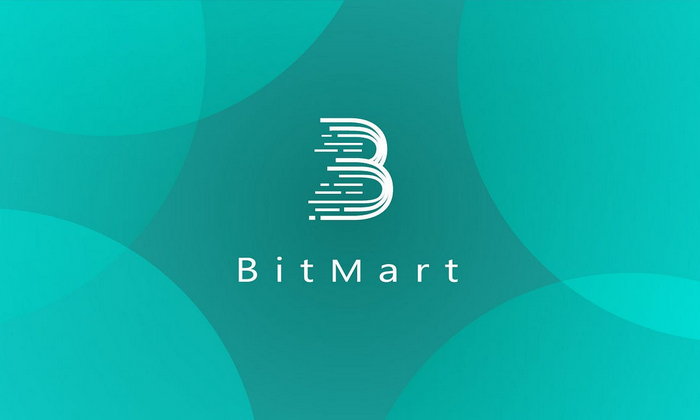
Understanding Overnight Fees in BitMart Contracts
Leveraged trading in cryptocurrency markets, facilitated by perpetual contracts, exposes traders to the concept of overnight fees. These fees, also known as funding rates, are designed to maintain price equilibrium between perpetual contracts and their underlying assets. BitMart, a prominent cryptocurrency exchange, offers a comprehensive suite of contract trading options, including perpetual contracts, with varying overnight fee structures. This article delves into the details of overnight fees on BitMart contracts, providing traders with a comprehensive understanding of their implications and strategies for mitigating their impact.
Overnight Fee Mechanics
- Pricing Mechanism: Overnight fees are calculated based on the difference between the perpetual contract price and the underlying asset's spot price. When the contract price is higher than the spot price, traders holding long positions pay a funding fee to traders holding short positions. Conversely, when the contract price is lower, short position holders fund long position holders.
- Funding Interval: Overnight fees are typically applied at specific intervals, usually every 8 hours. The specific interval may vary depending on the contract and exchange. BitMart contracts typically have a funding interval of 8 hours.
- Calculation Formula: The formula for calculating overnight fees varies depending on the exchange. BitMart uses the following formula:
Funding Rate = (Premium Index - Mark Price) / 8 * Trading Fee Rate
where:
- Premium Index: A weighted average of spot prices from multiple exchanges
- Mark Price: The current price of the contract on BitMart
- Trading Fee Rate: The fee charged to traders for entering or exiting positions
Overnight Fee Implications
- Profit Optimization: Traders can exploit knowledge of overnight fee mechanisms to optimize their profit potential. By understanding the funding rate dynamics, traders can adjust their positions to align with expected fee payments and minimize fees.
- Risk Management: Overnight fees can impact the profitability and risk of a trade. Traders should consider the potential overnight funding costs when determining their position size and risk tolerance.
- Margin Trading: Overnight fees can amplify the impact of leverage in margin trading. Traders using leverage should carefully assess the potential funding costs relative to their risk appetite.
Minimizing Overnight Costs
- Position Adjustment: Traders can adjust their positions to minimize funding costs. For example, if the contract price is expected to rise, a trader can hold a long position and pay the funding fee. If the contract price is expected to fall, the trader can hold a short position and receive the funding fee.
- Contract Selection: Choosing contracts with lower funding rates can reduce the impact of overnight costs. Traders should compare funding rates across different contracts before selecting the one that aligns with their trading strategy.
- Hedging Strategies: Hedging with spot assets or inverse contracts can mitigate the impact of overnight fees. By holding an equal and opposite position in the spot market or an inverse contract, traders can offset the funding fees on their perpetual contract positions.
Conclusion
Overnight fees are an integral aspect of perpetual contract trading. Traders who understand the mechanics and implications of overnight fees can make informed trading decisions and mitigate their impact. By utilizing position adjustment, contract selection, and hedging strategies, traders can optimize their profitability and manage risk effectively.
Disclaimer:info@kdj.com
The information provided is not trading advice. kdj.com does not assume any responsibility for any investments made based on the information provided in this article. Cryptocurrencies are highly volatile and it is highly recommended that you invest with caution after thorough research!
If you believe that the content used on this website infringes your copyright, please contact us immediately (info@kdj.com) and we will delete it promptly.
- XRP Has Officially Surpassed Ethereum (ETH) in Fully Diluted Market Cap
- 2025-04-20 20:00:13
- Best Wallet Token ($BEST) is disrupting the $11 billion crypto wallet space with a new super app and strategic tokenomics.
- 2025-04-20 20:00:13
- Investor Forecasts 50-Fold Return On XRP
- 2025-04-20 19:55:12
- Sui Has Been Making Waves Lately, with Its Ecosystem Drawing in Fresh Attention
- 2025-04-20 19:55:12
- Ethereum (ETH) Price Remains at March 2023 Levels Despite Community Activity and Internal Changes
- 2025-04-20 19:50:13
- XRP Ledger (XRPL) DEX Promises New Opportunities for Tokenized Assets
- 2025-04-20 19:50:13
Related knowledge
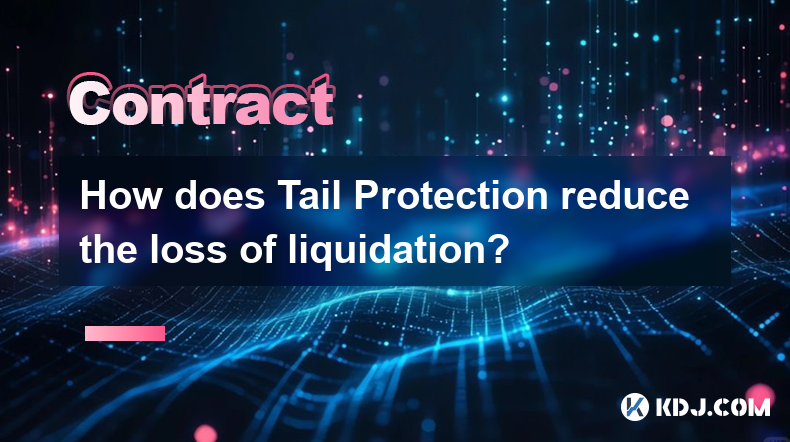
How does Tail Protection reduce the loss of liquidation?
Apr 11,2025 at 01:50am
Introduction to Tail Protection in CryptocurrencyTail Protection is a mechanism designed to mitigate the risks associated with liquidation in cryptocurrency trading. Liquidation occurs when a trader's position is forcibly closed by the exchange due to insufficient margin to cover potential losses. This often happens in leveraged trading, where traders b...
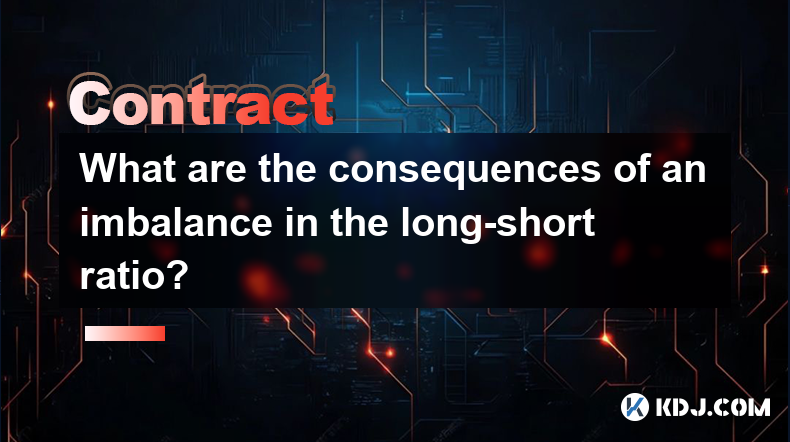
What are the consequences of an imbalance in the long-short ratio?
Apr 13,2025 at 02:50pm
The long-short ratio is a critical metric in the cryptocurrency trading world, reflecting the balance between bullish and bearish sentiments among traders. An imbalance in this ratio can have significant consequences on the market dynamics, affecting everything from price volatility to trading strategies. Understanding these consequences is essential fo...
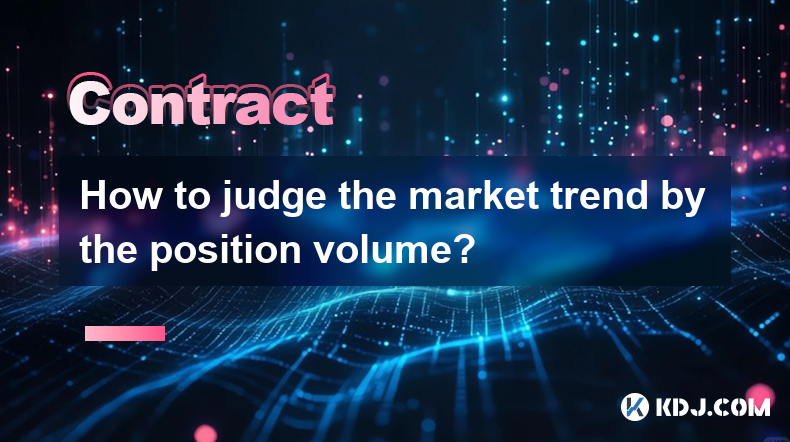
How to judge the market trend by the position volume?
Apr 11,2025 at 02:29pm
Understanding how to judge the market trend by position volume is crucial for any cryptocurrency trader. Position volume, which refers to the total number of open positions in a particular cryptocurrency, can provide valuable insights into market sentiment and potential price movements. By analyzing this data, traders can make more informed decisions ab...

Why does a perpetual contract have no expiration date?
Apr 09,2025 at 08:43pm
Perpetual contracts, also known as perpetual futures or perpetual swaps, are a type of derivative product that has gained significant popularity in the cryptocurrency market. Unlike traditional futures contracts, which have a fixed expiration date, perpetual contracts do not expire. This unique feature raises the question: why does a perpetual contract ...
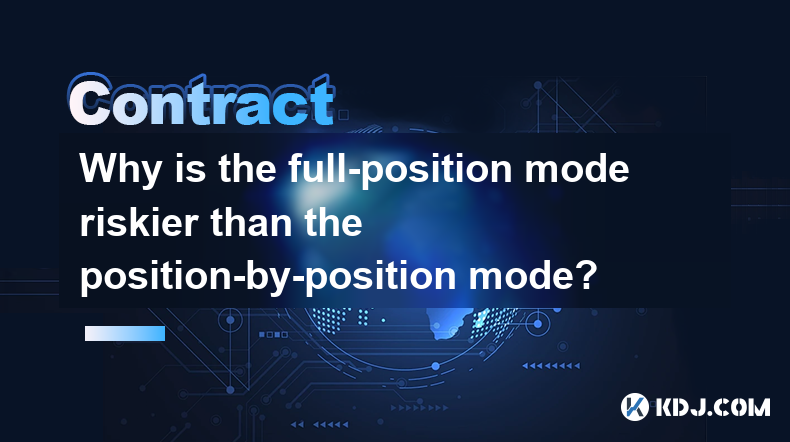
Why is the full-position mode riskier than the position-by-position mode?
Apr 13,2025 at 03:42pm
Why is the Full-Position Mode Riskier Than the Position-by-Position Mode? In the world of cryptocurrency trading, the choice between full-position mode and position-by-position mode can significantly impact the risk profile of a trader's portfolio. Understanding the differences between these two modes is crucial for making informed trading decisions. Th...
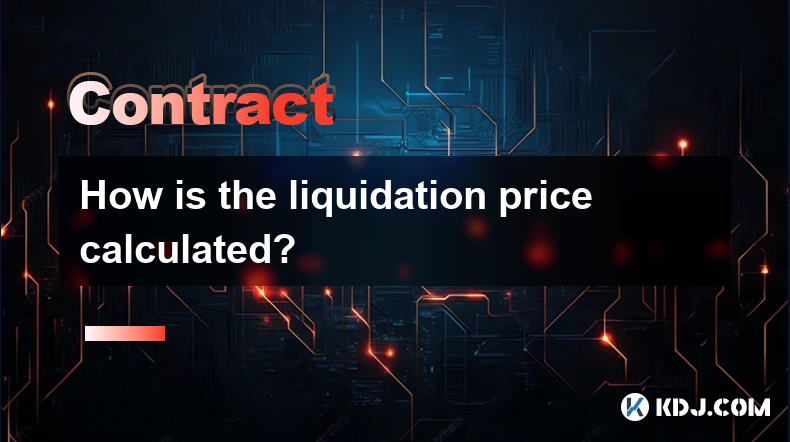
How is the liquidation price calculated?
Apr 12,2025 at 01:35am
Introduction to Liquidation PriceLiquidation price is a critical concept in the world of cryptocurrency trading, particularly when dealing with leveraged positions. Understanding how this price is calculated is essential for traders to manage their risk effectively. The liquidation price is the point at which a trader's position is forcibly closed by th...

How does Tail Protection reduce the loss of liquidation?
Apr 11,2025 at 01:50am
Introduction to Tail Protection in CryptocurrencyTail Protection is a mechanism designed to mitigate the risks associated with liquidation in cryptocurrency trading. Liquidation occurs when a trader's position is forcibly closed by the exchange due to insufficient margin to cover potential losses. This often happens in leveraged trading, where traders b...

What are the consequences of an imbalance in the long-short ratio?
Apr 13,2025 at 02:50pm
The long-short ratio is a critical metric in the cryptocurrency trading world, reflecting the balance between bullish and bearish sentiments among traders. An imbalance in this ratio can have significant consequences on the market dynamics, affecting everything from price volatility to trading strategies. Understanding these consequences is essential fo...

How to judge the market trend by the position volume?
Apr 11,2025 at 02:29pm
Understanding how to judge the market trend by position volume is crucial for any cryptocurrency trader. Position volume, which refers to the total number of open positions in a particular cryptocurrency, can provide valuable insights into market sentiment and potential price movements. By analyzing this data, traders can make more informed decisions ab...

Why does a perpetual contract have no expiration date?
Apr 09,2025 at 08:43pm
Perpetual contracts, also known as perpetual futures or perpetual swaps, are a type of derivative product that has gained significant popularity in the cryptocurrency market. Unlike traditional futures contracts, which have a fixed expiration date, perpetual contracts do not expire. This unique feature raises the question: why does a perpetual contract ...

Why is the full-position mode riskier than the position-by-position mode?
Apr 13,2025 at 03:42pm
Why is the Full-Position Mode Riskier Than the Position-by-Position Mode? In the world of cryptocurrency trading, the choice between full-position mode and position-by-position mode can significantly impact the risk profile of a trader's portfolio. Understanding the differences between these two modes is crucial for making informed trading decisions. Th...

How is the liquidation price calculated?
Apr 12,2025 at 01:35am
Introduction to Liquidation PriceLiquidation price is a critical concept in the world of cryptocurrency trading, particularly when dealing with leveraged positions. Understanding how this price is calculated is essential for traders to manage their risk effectively. The liquidation price is the point at which a trader's position is forcibly closed by th...
See all articles























































































